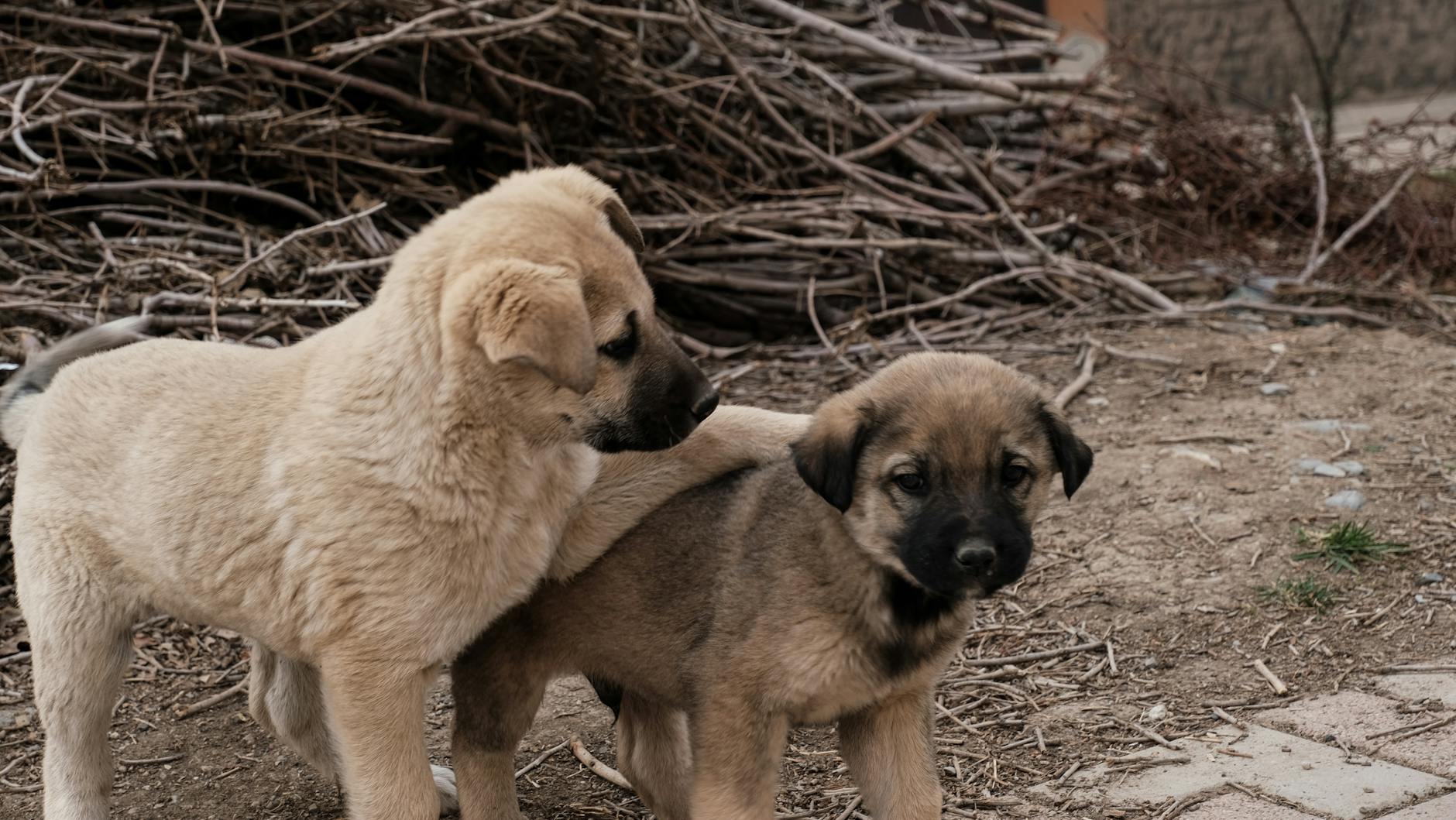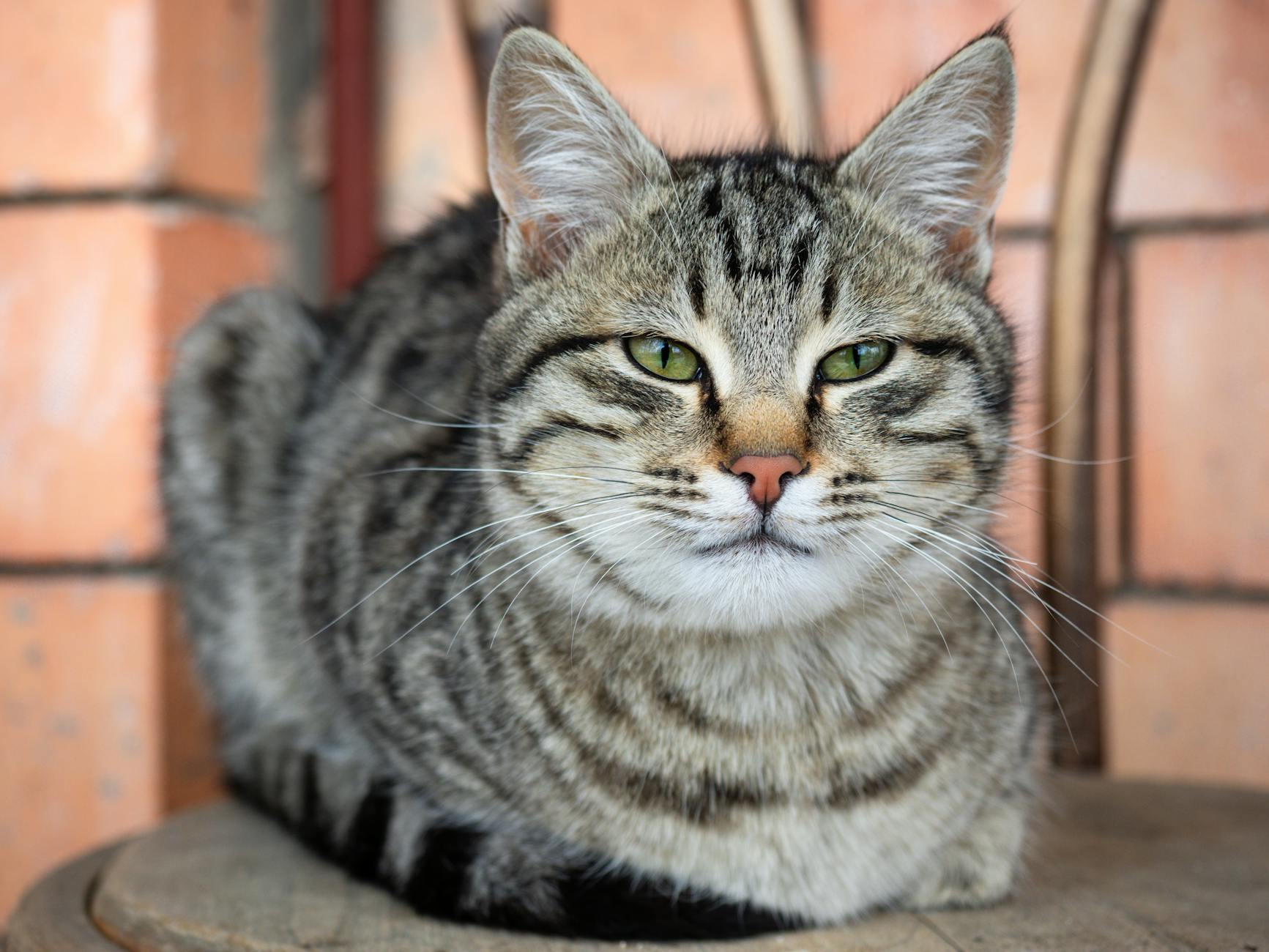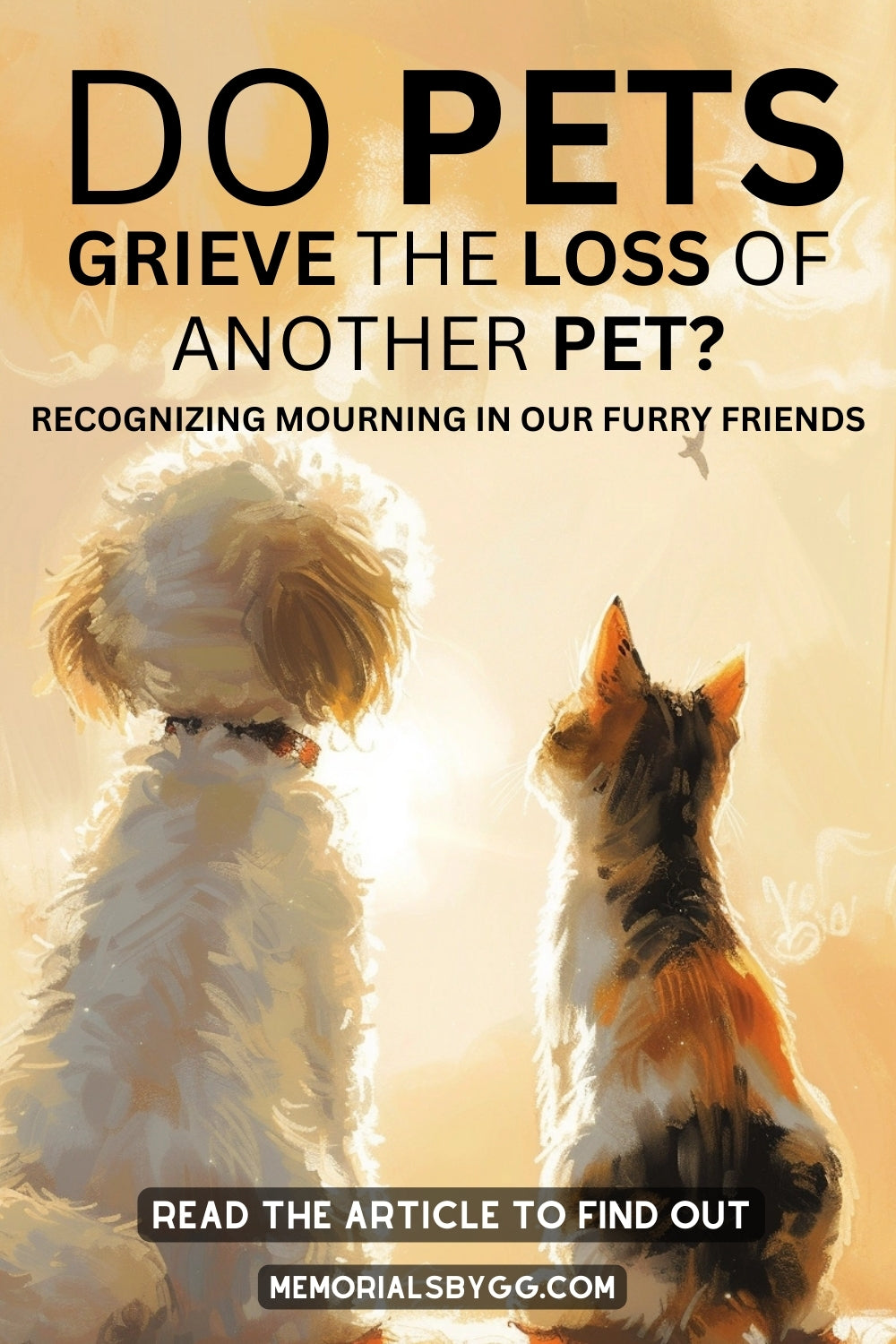Have you ever wondered, do pets grieve the loss of another pet? The bond between pets is profound, often resembling the strong connections found within human families. For those who adore their furry companions and consider them part of the family, witnessing pets mourn the loss of a fellow animal friend can be heart-wrenching.
When a beloved pet passes away, it's not uncommon for the remaining pets in the household to exhibit signs of grief. Just like humans, animals can experience a sense of loss and sadness when a companion they were close to is no longer present. This can manifest in various behaviors that may indicate mourning, such as changes in appetite, increased vocalization, or seeking out places that hold memories of the departed pet.
For pet owners, the distress of watching their surviving animals grieve can add an additional layer of emotional turmoil to an already challenging time. Understanding how pets process and cope with loss is crucial in providing them with the support and care they need during this period of mourning.
In this blog post, we will delve deeper into the topic of pets grieving the loss of another pet. We will explore the signs of grieving in animals, discuss how pet owners can help their pets cope with loss, and provide insights on navigating this emotional journey alongside your furry companions. Whether you have dogs, cats, or other pets, knowing how to recognize and address their grief can make a significant difference in their well-being during this difficult time.
Credit: Mezzacotta
Do Pets Grieve?
Losing a furry companion can be a heart-wrenching experience for both animals and humans. Pets, much like us, can experience grief in their unique ways. Recognizing the signs of grief in pets is essential to provide them with the comfort and support they need during such challenging times.
Recognizing Grief in Pets
Pets may exhibit various behaviors that indicate they are grieving the loss of another pet. Changes in eating habits, such as loss of appetite or overeating, can be a sign of distress. Increased vocalization, restlessness, or seeking solitude are also common manifestations of grief in pets. Just like humans, animals express their emotions differently, and it's crucial to be attentive to these signs to help them cope effectively.
 Photo by Ayşe İpek
Photo by Ayşe İpek
Similarities Between Human and Pet Grief
The parallels between human grieving and pet grieving are striking, underscoring the profound emotional depth that animals can experience. Pets form strong emotional bonds with their companions and can feel immense sadness and longing when they pass away. Just like humans, they may go through stages of mourning, displaying behaviors that mirror our own grief responses. Understanding these similarities can help pet owners empathize with their furry friends and provide them with the necessary support and comfort.
In times of loss, recognizing and acknowledging the grief experienced by pets is crucial for their well-being. By being attentive to their emotions and behaviors, pet owners can offer the love and reassurance needed to navigate through the grieving process together. Understanding the emotional world of our beloved animals can strengthen the bond we share with them, even in moments of sorrow.
Pets Mourning the Loss of a Dog or Cat Friend
Losing a furry companion can be a heartbreaking experience not just for humans, but also for their animal friends. Pets form strong emotional bonds with their fellow companions, often viewing them as part of their pack or family. When a pet loses a dog or cat friend, it can deeply impact their mental well-being, leading to a period of mourning and adjustment.
Bond Between Pets
Pets, especially dogs and cats, have the remarkable ability to form deep bonds with one another. These bonds go beyond mere cohabitation and companionship; they involve emotional connections and social interactions. When a pet loses a close friend, they may experience a sense of loss and confusion similar to what humans feel when mourning the passing of a loved one. This emotional bond plays a crucial role in how pets process grief and cope with the absence of their friend.
 Photo by Genadi Yakovlev
Photo by Genadi Yakovlev
Behavioral Changes in Grieving Pets
Pets mourning the loss of a dog or cat friend may exhibit various behavioral changes that signal their grief. These changes can manifest as lethargy, loss of appetite, increased vocalization, or restlessness. Grieving pets may also show signs of searching for their lost friend, such as sniffing around the house, looking for them in their usual spots, or displaying anxious behavior. These behavioral changes are a natural response to the emotional impact of losing a companion.
When pets mourn the loss of a fellow animal friend, they need time to process their grief and adjust to the new reality. Providing extra love, attention, and comforting routines can help grieving pets navigate their emotions and find solace in their human family members. Understanding the depth of their bond and allowing them to grieve in their unique way can support pets in healing from the loss of a beloved friend.
Should Pets See Dead Pets?
When facing the passing of a pet, the question of whether to allow other pets to witness the deceased companion arises. Let's explore the pros and cons of allowing pets to view a deceased companion.
Pros and Cons of Allowing Pets to View a Deceased Companion
Pros:
Allowing pets to see a dead companion can provide them with closure by helping them understand the finality of death. This visual confirmation may assist in preventing prolonged searching behaviors for the missing companion, easing their confusion and anxiety. It can also offer a chance for other pets to comprehend the natural cycle of life.
On the emotional front, witnessing the death or aftermath may promote a sense of acceptance and enable pets to grieve alongside their owners. This shared experience could strengthen the bond between pets and their human family members, fostering a sense of unity during a difficult time.
Cons:
On the flip side, exposing pets to the sight of a deceased companion may lead to distress and confusion. Some pets might not grasp the concept of death fully, causing them unnecessary emotional turmoil. Witnessing the loss of a companion could trigger feelings of fear or anxiety, impacting their overall well-being.
Moreover, the sight of a dead pet may linger in the minds of other pets, potentially causing prolonged distress or behavioral changes. It's essential to consider each pet's unique personality and emotional sensitivity before allowing them to view a deceased companion.
In conclusion, the decision to let pets see a dead companion should be made thoughtfully, taking into account the individual needs and emotional well-being of each pet. While it may offer closure and understanding for some, it could also cause confusion and distress for others. Careful consideration and understanding of your pets' reactions are key in navigating this sensitive situation.
Symptoms of Grieving Pets
Pets, like humans, can experience grief when they lose a companion. Recognizing the symptoms of grief in pets is essential in providing them with the care and support they need during this difficult time.
Physical Symptoms of Grief in Pets
Grieving pets may display various physical manifestations that indicate their distress. Some common physical symptoms of grief in pets include:
- Weight Loss: A grieving pet may exhibit a noticeable decrease in appetite, leading to weight loss over time.
- Decreased Energy Levels: Pets mourning the loss of a companion may appear lethargic or less interested in activities they once enjoyed.
- Digestive Issues: Grief can also manifest in pets through digestive upset, such as diarrhea or vomiting.
These physical signs can be distressing for pet owners to witness but understanding them is crucial in providing appropriate care and attention to their grieving pet.
Emotional Indicators of Pet Grief
In addition to physical symptoms, pets grieving the loss of a companion may show emotional indicators that reflect their inner turmoil. Some emotional cues displayed by grieving pets may include:
- Increased Clinginess: Grieving pets may seek more attention and comfort from their owners, staying close by and seeking reassurance.
- Aggression: In some cases, pets experiencing grief may exhibit unusual aggression towards other pets or family members, stemming from their emotional distress.
- Withdrawal: On the contrary, some grieving pets may withdraw and become more solitary, preferring to be alone rather than engage with others.
Understanding these emotional cues is vital in providing support and comfort to pets navigating the complex emotions of grief. By recognizing both the physical and emotional symptoms of grief in pets, owners can offer the necessary care and reassurance to help their beloved companions through the grieving process.
 Photo by Genadi Yakovlev
Photo by Genadi Yakovlev
Supporting Grieving Pets
Losing a pet can be a tough experience, not only for the pet owner but also for other pets in the household. Pets, like humans, can go through a grieving process. Here are some ways you can support your grieving pets during this difficult time.
Creating a Comforting Environment
When a pet is grieving the loss of a companion, creating a comforting environment is crucial. Here are some ways to help them cope:
- Maintain Routines: Stick to their regular feeding times and walks. Consistency can provide a sense of stability during this emotional period.
- Offer Extra Affection: Provide comforting cuddles, gentle strokes, and verbal reassurance. Your presence and affection can be a source of comfort for your grieving pet.
- Provide Engaging Activities: Introduce new toys or activities to distract your pet and keep them mentally stimulated. Interactive play can help lift their spirits and ease their grief.
 Photo by Samson Katt
Photo by Samson Katt
Seeking Professional Help
Sometimes, pet grief can become overwhelming or prolonged. In such cases, it's essential to seek guidance from professionals. Here's how you can reach out for help:
- Consult Veterinarians: Veterinarians can offer advice on how to support your grieving pet and may suggest appropriate interventions to ease their distress.
- Engage Animal Behaviorists: Animal behaviorists specialize in understanding pet behavior. They can provide insights into your pet's grief and recommend strategies to help them cope effectively.
For more detailed guidance on creating a comforting environment for grieving pets, you can explore resources like Helping Your Grieving Pet and Compassionate Tips on Coping with Pet Loss.
By offering a supportive and loving environment, along with professional guidance if needed, you can help your grieving pet navigate through this challenging phase with care and understanding.
Conclusion
Loss affects everyone in various ways, including our beloved pets. Understanding how pets grieve the loss of another pet can provide comfort in knowing that they share similar emotions with us during times of sorrow. By recognizing the signs of mourning in animals, we can better support them through their grieving process. Remember, pets are not immune to feelings of loss and sadness, and it's essential to be there for them just as they are there for us in our times of need.
In this article, we explored the emotional world of pets and how they handle the passing of a furry friend. From displaying symptoms of grief to finding ways to cope with their loss, pets exhibit a range of behaviors that showcase their deep emotional connections. By acknowledging their mourning process, pet owners can offer the understanding and support needed to help their companions navigate through this difficult time.
Through our bond with our pets, we learn the true depth of their love and loyalty, making it crucial to be attuned to their emotional well-being and provide them with the care and compassion they deserve. As pet owners, our role in comforting our grieving pets is a testament to the special connection we share with these loyal companions. Let us continue to cherish and support our pets during both their joys and sorrows, knowing that our unwavering love is what truly makes a difference in their lives.
Remember, just as we find solace in the presence of our furry friends, they too seek comfort and reassurance from us during moments of loss. By being there for them, we strengthen the bond we share and create a lasting legacy of love and companionship that transcends even the deepest of sorrows.
If you have enjoyed this article tell me below in the comments and don't forget to follow and like us on Facebook, Instagram
Check out our shop here and sign up for our email list and receive a 30% discount code.

